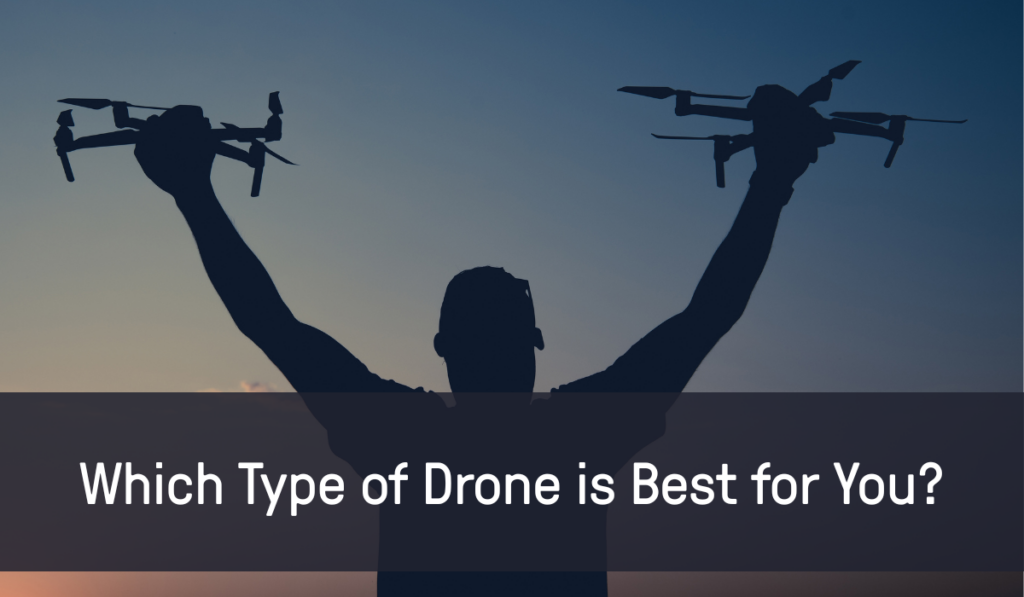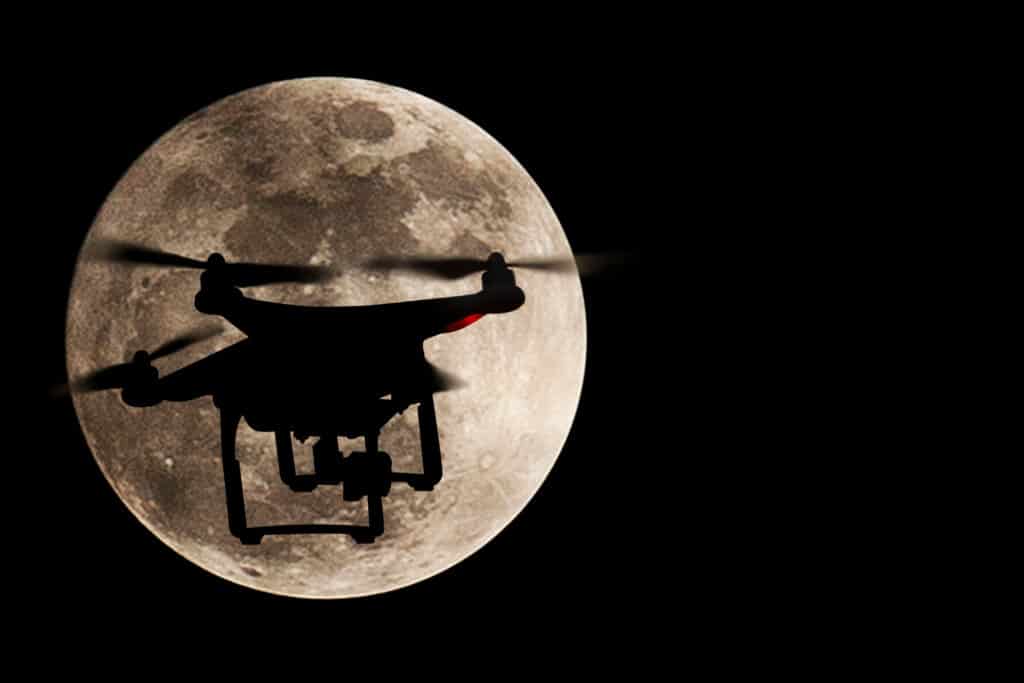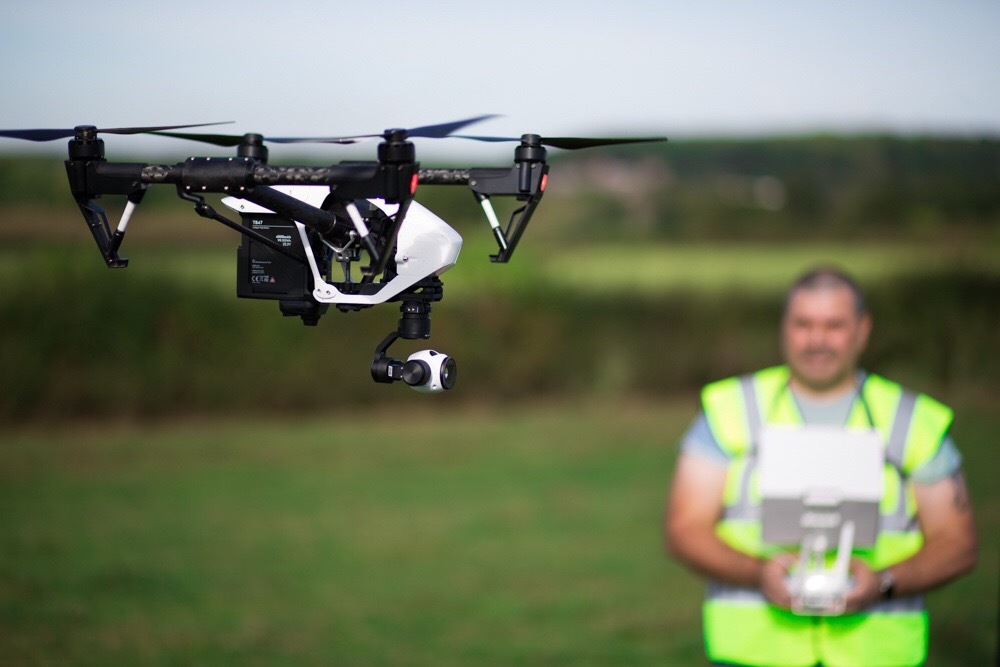Pay Attention to Changing Drone Laws. Here’s Why
Drone laws and regulations are constantly changing. Fortunately, many are surprisingly beneficial to drone pilots everywhere.
Here, we explore key changes in both the US and UK.
Long gone are the wild days of unregulated drone operations. These days, there’s hardly a location without drone laws and regulations restricting commercial UAV operations.
In a perfect world, you could fly your drones however you wished, assuming the flights were safe and ethical, of course. However, as we all know, the world is far from perfect. In reality, drone laws and regulations help keep everyone safe, as we all share the airspace we operate in.
Through the FAA in the United States, the CAA in the UK, and numerous similar bodies throughout the rest of the world, governments dictate what we legally can and can’t do.
These laws constantly change, and what was set in stone yesterday may not be valid today. For this reason, everyone working with drones must stay informed of the current drone laws and regulations.
Fortunately, not all changes hinder your operations. Far from it, in fact. A number of changes provide more freedom to fly, and might even save you a few dollars on equipment costs.
So, let’s take a look at some specific examples, both in the UK and US, and discover why continued education and training remain so important.
Why Care about Changing Drone Laws and Regulations?
It’s easy to think that once you have your Part 107 (for those in the US), you know the rules you must follow. When rules change, pilots often learn about them only when it is time to recertify every two years.
But, a lot can happen in two years, and if you only wait until recertification time to brush up on changes, you might find yourself regretting it.
Take, for example, a recent experience of my own.
I specialize in vacant land photography, often many miles away from civilization. More often than not, I operate in areas with no airspace restrictions. On the rare occasion I’m near an air traffic tower (ATC) and do not have LAANC approval, I typically call ATC for permission to fly in the space.
And, I have always been approved.
About a year ago, a brand-new drone pilot informed me (with the FAA policy change in hand) that this was no longer allowed. I had no idea I was doing anything wrong, and apparently ATC didn’t either. The experience taught me I needed to stay more informed of rule changes.
If you’re unaware of rule changes, you risk operating unsafely. You can also hurt people, damage property, and face legal penalties. Even failure to register your drones properly can result in fines of up to $250,000, and jail time of up to three years.
But, other regulation changes might actually save you money. More on that, below.
So, from avoiding penalties to saving you money, it’s definitely worth taking the time to stay current on drone laws and regulations.
How Change Can Benefit Drone Pilots
Not all changes in drone laws and regulations slow down UAV pilots; many actually benefit us all.
When drones first started coming on the scene, many feared they would cause more harm than good. Concerns ranged from privacy issues to rogue drones bringing down passenger aircraft. Though at the time, these seemed like real possibilities to many, these fears have thankfully proved unfounded.
In response to the concern, the FAA, CAA, and similar agencies enacted many rules limiting commercial drone use.
Of course, many of those within the drone industry saw some regulations as too restrictive. One example is the rule limiting flying a drone beyond the pilot’s visual sight (BVLOS). Another example was the restriction that drones could not be flown at night without a waiver.
But, as time passes and comfortability with UAV technology increases, regulations like these are becoming less restrictive. Most pilots can easily fly at night without a waiver (at least in the US), while BVLOS operations continue gaining more approval.
Staying on top of changing drone laws and regulations can actually make your life as pilot much more manageable.
Let’s dive into a few more specific examples.
Changes to Drone Laws and Regulations in the United States
In just the last few years, there have been several rule changes you may have missed. Although most changes helped make life easier, one is still working itself out (remote ID requirements).
In March of 2021, the FAA introduced new regulations related to night operations and recertification for existing Part 107 pilots.
Before this rule change, pilots needed to obtain a waiver to fly their drones at night. Before this change, the application I sent to the FAA for my night ops waiver was over 20 pages long.
But, since this rule changed, pilots just need a little training and proper drone lights to fly during evening hours.
When I took my first recurrent test, it was still in person, like the original Part 107 exam. Since March 2021, the recurrent test has been online and is free. It’s almost impossible to fail, as well.
In addition to these changes, two more are set to take place in 2023.
The first concerns a loosening of the restrictions on flying over people. Operations over people once required a Part 107.39 “Operation Over People” waiver. Now, that’s no longer the case. You need to see where your drone falls into one of four categories based on weight for further guidance on this one.
But, by far the biggest change for 2023 will be the requirement in September for drones to have remote ID capability.
This requirement means that while you’re flying a drone, it must transmit its location and details about the operator to fly legally. Solutions to support this change are still in development, so keep your ear to the ground on this one.
Changes In the UK Airspace
The US isn’t the only location with changing drone laws and regulations. In the UK, changes are happening, too.
Let’s examine a few of the latest, and how they might impact your operations.
Drone Class Markings
Take, for instance, a recent regulation regarding drone class markings.
Starting January 1, 2023, drones with an EU class mark are no longer recognized in the UK.
What does that mean for you? Well, it means drones will need to be flown under Transitional provisions. The Transitional period, originally due to end in 2022, has been extended to January 1, 2026.
This means you can still operate current drones with no class mark (or a class mark not recognized in the UK) in accordance with Transitional provisions for longer than anticipated.
If you weren’t keeping up with these changing drone laws and regulations, you might have considered changing or upgrading your drone fleet unnecessarily.
You may have held off for purchases of new class-marked aircraft that aren’t coming. Or, you may have even based your future purchases on out-of-date information relating to what new class-marked aircraft will permit (i.e. in the EU, a class-marked Mavic 3 can operate down to 5 meters from uninvolved persons, but not in UK).
Not knowing about this change could have significantly altered your anticipated budget or purchases.
Requirements for the GVC
Requirements for the General Visual Line of Sight Certificate, or GVC, have undergone changes, too.
Operators who qualified under the old National Qualified Entity (NQE) received a ‘Full Category Recommendation’. This entitled them to apply to the CAA for a Permission for Commercial Operations (PfCO).
They were told at the time that the qualification had no expiry.
However, after changes made on December 31, 2020, the Full Category Recommendation was replaced with the General VLOS Certificate (GVC). The GVC must be renewed every five years.
From that point, the old qualification could only be used for renewing permissions from the CAA, and not new applications which required the GVC.
This again changes in December 2023, when old Full Category Recommendations will no longer be valid at all, and even renewals will require pilots to hold GVCs.
If you didn’t know about this change, it could result in periods in which you can’t fly, discovering you’re no longer suitably qualified only at renewal time. At that point, you would either need to rush to get qualifications, or pay fines for late or incorrect applications to the CAA.
But, knowing about the changes mean you can plan ahead, and apply for permission renewal with correct supporting documentation – without the stress of rushing or operating illegally.
Green Strobes for Night Flight
For quite a while, it was expected that new regulations (originally set to take effect July 2022) would require a green strobe fitted to drones flown at night.
However, this requirement was rescinded, and is not currently in UK law.
So, if you were unaware of changing drone laws and regulations, you might have unnecessarily purchased extra equipment.
Again, keeping up with the changes can save you money and frustration.
CAP722 Changes
CAP722 is a suite of documents that describes how to comply with regulations in the UK.
The suite was extensively rewritten in December 2022, and new Accepted Means of Compliance & Guidance Material (AMCs & GMs) were released.
This has impacted the content of Operations Manuals, legal definitions of Visual Line of Sight, and much more.
If you didn’t stay current with changing drones laws and regulations, you may unintentionally not comply with requirements, encounter problems at renewal due to incorrect logging of information, and much more.
Key Takeaways
As you can see, changing drone laws and regulations can significantly impact how we operate as commercial drone pilots. The world changes, and we as operators must keep up-to-date to stay safe and legal.
Keeping informed of changes is essential if you want to remain in compliance, avoid fines, and keep your operations running smooth.
Thankfully, change isn’t always bad. Not only can it save you from spending money on unnecessary upgrades, new regulations may open up a whole new world of possibilities for you and your drone.
So, are your certifications and knowledge of laws current? Are you looking for a training program that will keep your organization in compliance and up-to-date?
At Consortiq, we pride ourselves on training programs that include the latest in changing laws, no matter where your organization operates.
And, not only do we offer a complete training solution to fit any need, we also have some of the world’s best drone pilots ready to conduct your operations for you, if that’s what you prefer.
Ready to learn more? Just complete the form below to schedule a risk-free consultation!

David Daly - Contributing Author
David Daly, is an award-winning photographer/writer and licensed (FAA) Commercial sUAS pilot. A graduate of the United States Naval Academy, David is a former Marine Corps officer with a BS in Oceanography and has earned his MBA from the University of Redlands. David has worked for Fortune 100 companies and has a background in aerospace, construction, military/defense, real estate, and technology.
Ready to Utilize Drones For Your Organization?
Contact Us Today to Get Started!



